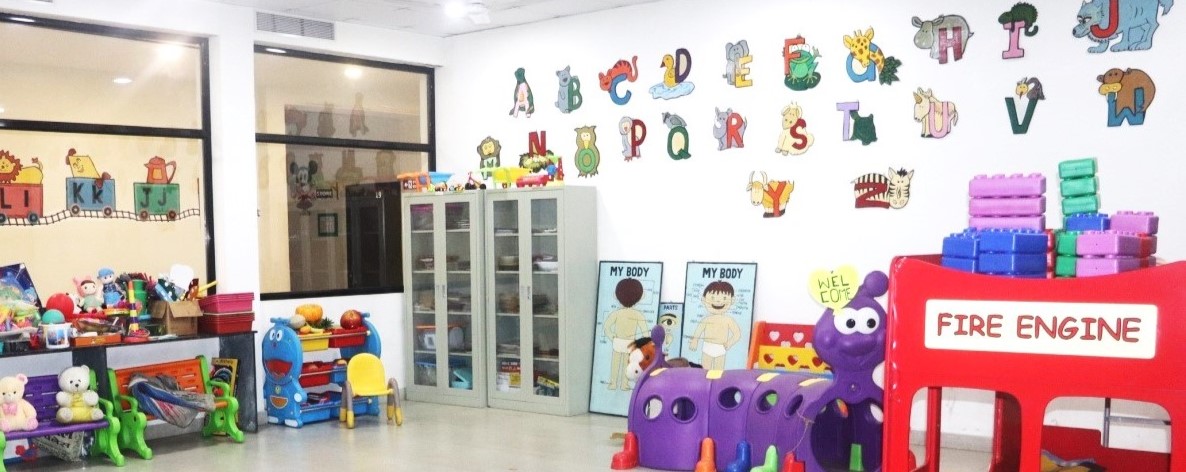
KINDERGARTEN
The Programme imparts linguistic , creative , numerical , social , motor , psychomotor and kinesthetic skills leading to the development of intellectual , physical, cultural , artistic and communication skills in a free and stimulating environment. Nature walks and regular educational tours develop a sense of openness towards the world. Focus is on developing communication skills and on reinforcing an innate sense of discovery in every thing that is taught.
Kindergarten is a place where a child feels at home away from home. Here the kids get a headstart for their formal education.
The Kindergarten Section includes Montessori , Nursery , LKG and UKG. The Kindergarten is organized to welcome the children in the best conditions and respect the educational needs of every child. Well trained teaching faculty gives special emphasis on emotional , intellectual , physical development of each child with individual attention and personal care. The warmth and supportive atmosphere of home is replicated here. A child's natural curiosity and joy in exploring its environment is given full rein. The play way methodology along with stories music, dance, rhymes group activities and physical education are incorporated in the syllabus. Stage activities help the children to develop their talents , overcome stage fear and develop confidence. Children are trained here in conversation and story narration. The activities like building with blocks puzzles, reproducing shapes and patterns, stringing beads help in developing hand and eye co-ordination. Kindergarten improves children's prospects for success in school and helps them make a smoother transition to Grade 1.
At the end of the Kindergarten, the child will be able to :
• Feel self-confident.
• Independently carries out simple tasks and plays his/her role in Academic activities.
• Find way about and moving around in a space.
• Use drawing as a means of expression and representation.
• Memorize and being able to sing songs and nursery rhymes correctly.
• Memorize a series of numbers.
• Count a quantity out loud by using learnt numbers.
• Compare quantities, solving problems related to quantities.
• Draw a circle, a square, a triangle.
• Take the initiative to ask questions or to express his point of view.
• Listen to and understand a text.
• Recognize and write most of the letters of the alphabet.
• Connect sounds and letters.
• Copy in running hand, under the teacher's guidance.
• Name the main parts of the human body and their functions, singling out the five senses and their functions.
• Identify danger and being aware of it.
